Call: - +254 721 806440 | Email: operations@allanofleet.com

The Complete Guide to Fleet Management in Kenya: Strategies for Efficiency and Cost Savings
Fleet management has become a crucial operational backbone for many businesses, NGOs, and government agencies in Kenya. Whether it is transporting goods across the country, mobilizing teams to remote project sites, or ensuring executives reach their destinations safely, the efficiency and reliability of a fleet directly influence productivity and profitability. In today’s competitive environment, effective fleet management is no longer just about owning vehicles. It is about using the right strategies, technology, and expertise to maximize performance, minimize costs, and ensure safety.
Understanding Fleet Management in the Kenyan Context
Kenya’s transport and logistics sector faces unique challenges. The road network, while extensive, includes both well-paved highways and rough off-road tracks that demand specialized vehicles. Fuel costs continue to rise, making efficiency a top priority. Additionally, driver training and compliance with safety regulations are essential, particularly for organizations operating across diverse environments such as Nairobi, Mombasa, Turkana, and the Maasai Mara.
Fleet management in Kenya involves more than simply maintaining vehicles. It includes vehicle leasing and procurement, preventive maintenance, fuel tracking, GPS monitoring, and driver management. For organizations looking to optimize their transport operations, outsourcing fleet management to a professional service provider like Allano Fleet Management can deliver significant benefits, from cost savings to improved operational control.
Key Challenges Faced by Fleets in Kenya
One of the biggest challenges is the high cost of vehicle maintenance. Poor road conditions in certain regions accelerate wear and tear, while harsh weather can impact performance. Fuel theft and inefficient driving habits contribute to higher operational expenses. There are also compliance requirements from the National Transport and Safety Authority (NTSA), which demand proper record-keeping, driver training, and roadworthiness inspections.
Another challenge is fleet downtime. A single vehicle out of service can disrupt schedules, delay deliveries, or compromise critical operations in humanitarian aid or fieldwork. For organizations running large-scale operations, even minor delays can have costly ripple effects.
Strategies for Efficiency and Cost Savings
1. Preventive Maintenance
Preventive maintenance is the foundation of an efficient fleet. Rather than waiting for vehicles to break down, regular servicing ensures potential issues are identified early. Scheduled oil changes, brake checks, tire replacements, and engine diagnostics not only extend the lifespan of vehicles but also reduce the risk of unexpected failures on the road.
By partnering with a professional fleet manager, businesses can implement automated maintenance schedules and receive timely service reminders. This eliminates guesswork and ensures vehicles are always road-ready.
2. GPS Tracking and Driver Monitoring
Modern GPS tracking systems go beyond location tracking. They provide route history, driver behavior reports, speed alerts, and fuel consumption data. These insights allow managers to optimize routes, reduce idling time, and encourage responsible driving.
For instance, a delivery company operating in Nairobi can identify the most efficient routes to avoid traffic congestion, while a construction firm in Kisumu can monitor equipment usage on site. The result is reduced fuel costs, improved safety, and better time management.
3. Fuel Management
Fuel is one of the largest expenses in fleet operations. Implementing a fuel management system helps organizations track consumption, detect anomalies, and prevent theft. By combining GPS data with fuel monitoring, managers can see exactly where and how fuel is being used.
Small adjustments, such as reducing engine idling, maintaining proper tire pressure, and training drivers in fuel-efficient driving techniques, can lead to substantial savings over time.
4. Data-Driven Decision Making
The use of telematics and fleet management software allows organizations to collect and analyze operational data. This includes maintenance records, mileage tracking, driver performance, and fuel consumption patterns. With accurate data, managers can make informed decisions about vehicle replacement cycles, leasing options, and staffing requirements.
For example, if data shows that a particular model of vehicle has higher-than-average maintenance costs, the organization can phase it out and opt for a more reliable alternative.
5. Outsourcing to a Professional Fleet Manager
Outsourcing fleet management to a specialized company like Allano offers numerous advantages. It eliminates the administrative burden of managing vehicles in-house, ensures access to expert maintenance and procurement services, and provides 24/7 operational support. This is especially valuable for NGOs and companies operating in remote or challenging environments.
Case Study: Reducing Costs for a Logistics Company in Nairobi
A mid-sized logistics company in Nairobi faced frequent vehicle breakdowns, high fuel expenses, and poor driver accountability. After outsourcing their fleet management to Allano, the company saw a 20 percent reduction in operating costs within six months. Preventive maintenance schedules reduced breakdowns, GPS tracking improved delivery times, and driver training programs enhanced road safety. The result was a more reliable fleet and happier clients.
The Future of Fleet Management in Kenya
The industry is moving towards greater automation, digital tracking, and eco-friendly vehicle options. Electric and hybrid fleet vehicles are slowly entering the Kenyan market, offering potential long-term fuel savings and reduced environmental impact. With advances in artificial intelligence, predictive maintenance will soon become a standard feature, allowing managers to address potential issues before they cause downtime.
Organizations that embrace these innovations early will be better positioned to reduce costs, improve operational efficiency, and deliver superior service to their clients.
Final Thoughts
Fleet management is not just about keeping vehicles on the road. It is about creating a well-coordinated system that delivers reliability, safety, and cost efficiency. For Kenyan businesses, NGOs, and government agencies, partnering with a professional fleet manager like Allano means gaining a strategic advantage in an increasingly competitive environment. By adopting preventive maintenance, leveraging technology, and making data-driven decisions, organizations can ensure their fleets remain an asset rather than a liability.

